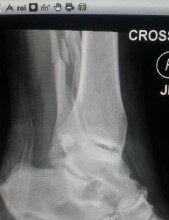Data is an essential asset for all healthcare organizations. With the right information and the right tools, the quality of treatment can improve, along with the outcomes for patients.
One of the most popular ways to organize and analyze data in the healthcare space is with SQL. With SQL on your side, you can access and harness information from a database quickly and efficiently.
If you are new to the world of SQL and unaware of its advantages, here is a look at the basics and the benefits it brings to the table for healthcare professionals.
What is SQL?
SQL is an acronym that stands for ‘structured query language’ but is more usually pronounced as ‘sequel’ to help it roll off the tongue a little easier.
It is a programming language that was designed back in the mid-1970s and continues to be used to this day to orchestrate information within a database.
In particular, it is intended to work as part of a relational database, which is a platform that contains structured data.
As a programming language, SQL uses standard English words to form longer queries, allowing users to extract information contained within a database and manipulate it as required.
In many cases, the functions of SQL are hidden from the end-users by another layer of software. Additional solutions, such as SentryOne SQL Sentry, can help streamline the performance of a database by highlighting the causes of existing problems.
Of course, if you want to use a database that relies on SQL, you need to get to grips with the underlying language. Keep reading to find out how it functions and why it is relevant in a healthcare context.
How does SQL work?
Discussing the ins and outs of SQL can take a long time, so let’s focus on the aspect that will be most important for most users – queries.
As mentioned, queries are a form of a statement in SQL which allows you to ask a question of the database and receive an answer, according to the parameters you define.
Every SQL query has to start with the clause ‘SELECT,’ which you can then use to set the parameters for the particular columns of a table within a database you want to search. This could be the first or last name of a patient, for example.
The ‘FROM’ clause follows up on this, which pinpoints a table for the query to look within. Finally, there is the ‘WHERE’ clause, which lets you narrow down your search even further so that the query results only include entries that meet your needs. This could be the specific ID number of a given patient or a more broad category to include multiple entries on the table in the results.
Queries are just one part of how SQL works, but hopefully, you can now see that the language itself is comparatively simple. The syntax is logically constructed so that anyone can get a handle on it with little instruction and experience.
As you progress and learn, you will be able to use SQL to modify, delete and move data freely within a database, meaning that the potential applications of this language are almost limitless.
Why is SQL important for healthcare professionals?
SQL can provide many perks to healthcare professionals if used correctly, some of which we have touched on already.
Firstly, it makes storing large volumes of patient information a breeze and does a much better job than basic spreadsheet software in this respect. If you find that your Excel files are getting unwieldy and confusing, leaping an SQL-powered database could be ideal.
Secondly, it gives you the ability to drill down into the available data and harness it efficiently and effectively from day to day. This makes it easier to manage patients, see to their needs and improve their satisfaction levels.
Finally, it allows you to capture, model, and analyze information to improve and enhance the underlying processes within your organization. Tapping into data to extract insights would usually be impossible given the volumes involved. Still, SQL is just one of the tools that tear down the barriers to a better, brighter future for healthcare as a whole, from admin to diagnosis and beyond.
Furthermore, because you can express the analytical insights from your use of SQL using visualization tools, it is straightforward to convey the findings to others, regardless of their technical expertise.
Conclusion
SQL is a powerful solution to the data dilemmas that plenty of healthcare professionals face today. For smaller firms and large organizations alike, it offers a way to make the most of information rather than being overwhelmed by it.







